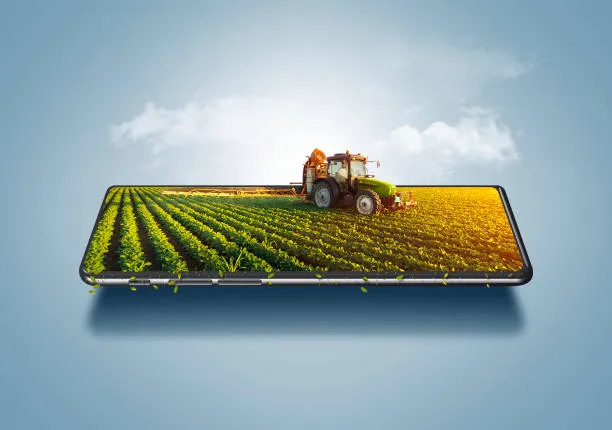
Sustainable Farming: Innovation and Technology for a Responsible Future
Sustainable farming is essential to ensure food security and the development of agriculture systems that can meet current needs without compromising natural resources for future generations. Implementing sustainable farming practices allows for the optimization of water resources, improves soil health, and reduces the environmental impacts of modern agriculture, promoting greater resilience against environmental impacts such as water pollution and soil degradation.
Main Strategies for Sustainable Farming
Technology and automation have driven the adoption of sustainable farming systems, ensuring higher efficiency and profitability. Some key strategies include:
- Crop rotation: Improves soil fertility, prevents erosion, and contributes to the health of agriculture systems.
- Smart irrigation systems: Allow for efficient water use, reducing waste and improving productivity.
- Precision farming: Uses advanced technology to monitor and manage crops, optimizing the use of farming inputs.
- Integrated pest management: Reduces the use of chemical pesticides through biological control and natural techniques.
- Cover crops: Improve soil health, protect against erosion, and support moisture conservation.
- Agroforestry: Integrates trees and shrubs into farming systems, promoting sustainable farming and carbon capture.

Impact of Sustainable Farming on Ecosystems
Adopting a sustainable project in sustainable farming not only improves the production of food and fiber but also contributes to protecting the environment and preserving ecosystem services. The conservation of agriculture systems and the reduction of carbon emissions strengthen sustainable farming systems globally. Additionally, sustainable farming practices help mitigate water pollution by reducing the runoff of chemicals and fertilizers, promoting the health of aquatic ecosystems. The integration of plant and animal production practices also helps maintain ecological balance, contributing to soil regeneration and animal welfare.
Economic Benefits of Technology for Agricultural Businesses
Reduction of operational costs:
- The automation of irrigation, planting, and harvesting systems reduces the need for labor, which lowers labor costs.
- Efficient use of resources like water and fertilizers reduces overall expenses.
Access to new revenue streams:
- Direct sales to international markets through digital platforms offer competitive prices and higher margins.
- Diversifying products thanks to the integration of new technologies opens up new business opportunities.
Increase in productivity:
- Monitoring and analysis technologies allow for precise crop management, resulting in higher yields per hectare.
- Optimizing growing conditions and pest control increases both the quality and quantity of harvests.
Improved long-term profitability:
- Initial investments in technology, such as sensors and drones, result in savings and higher profits in the long run due to enhanced efficiency.
- The ability to predict and adapt to climate changes also minimizes financial losses.
Future-focused responsibility:
- Implementing sustainable technologies not only boosts profitability but also contributes to a more responsible agricultural future.
- By optimizing the use of natural resources, a healthy agricultural environment is ensured for future generations.

Technology and Digitalization in Sustainable Farming
Digital solutions have revolutionized farming sustainably, enabling farmers to make data-driven decisions. Cloud platforms, remote sensors, and automation facilitate crop and irrigation management, optimizing the performance of agriculture systems. The use of artificial intelligence improves efficiency, reduces costs, and minimizes environmental impacts. Collecting data on climate and soil conditions through smart devices further optimizes sustainable farming practices, making each resource used in the most efficient way possible.
The transition to sustainable farming is key to meeting the growing demand for human food and fiber while ensuring the preservation of the natural resource base. Integrating advanced technology into farming processes not only improves productivity but also builds a more sustainable future for agriculture systems worldwide. Innovative technologies will continue to be a driving force in transforming how we farm, advancing sustainable farming practices that respect the environment.
To learn about innovative solutions in automation and smart irrigation, visit WiseConn, or explore our technological tools. If you need specialized consulting, contact us through our contact form.


